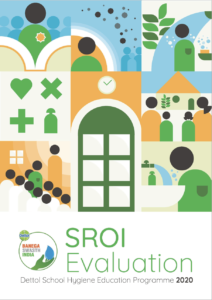New report reveals impact of AKF & Reckitt Benckiser School Hygiene Education Programme in India
The partnership is in its fourth year, and is now reaching over 800,000 children across 4000+ schools
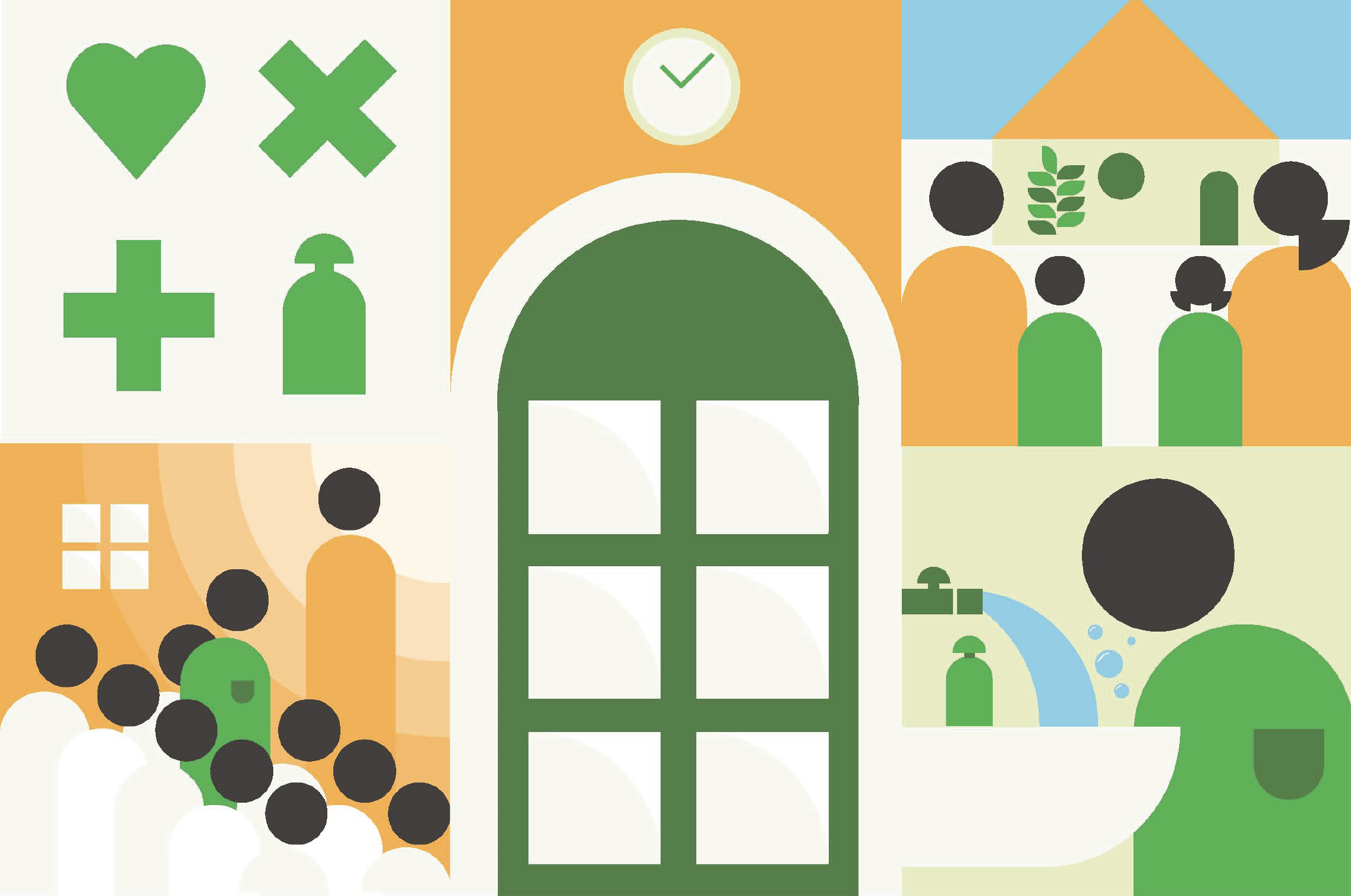
The School Hygiene Education Programme is a joint initiative between the Aga Khan Foundation and Reckitt Benckiser under the Dettol Banega Swachh India campaign, a flagship, nation-wide sanitation and hygiene campaign initiated by RB.
The campaign seeks to drive behaviour change through a multifaceted approach, which targets schools and the community at large. The school programme within the flagship national initiative by RB has been designed in recognition of the fact that, by changing the mindset and behaviour of school students, they can become a catalyst for change in schools, homes and neighbourhoods. By working with teachers and principals, the right knowledge can be passed on to build good habits in children and future generations.
The programme at a glance
3 States
(Uttar Pradesh, Gujarat, Bihar)
4000+ schools
800,000+ children
The continuation of the RB-AKF partnership in the fourth year has evolved and is being scaled to impact over 800,000 children across 4000+schools in the three states of Bihar, Gujarat and Uttar Pradesh. This is being undertaken by combining on-the-ground implementation in schools along with technical assistance to education departments as they develop the hygiene curriculum in schools.
Dettol Banega Swachh India is an ambitious 5-year programme which seeks to address the hygiene and sanitation concerns throughout India.
This programme aims to ensure that children have good hygiene and sanitation practices instilled in them from an early age, making them a catalyst for change in their respective families. Through this programme, government school teachers are delivering sanitation and hygiene curriculum, aimed at driving behavioural change in students and building awareness in the surrounding communities the schools operate in. For this to be successful, local governments must be involved to ensure that basic sanitation infrastructure is available in schools.
Dettol Banega Swachh India is an ambitious 5-year programme which seeks to address hygiene and sanitation concerns throughout India. The initiative aims to:
- Drive behaviour change towards hand hygiene, through numerous awareness initiatives such as the School Hand Wash Programme and Young Mother’s Programme.
- Improve sanitation facilities by working with NGO partners to identify areas across the country, to support the development and maintenance of cleaner toilets.
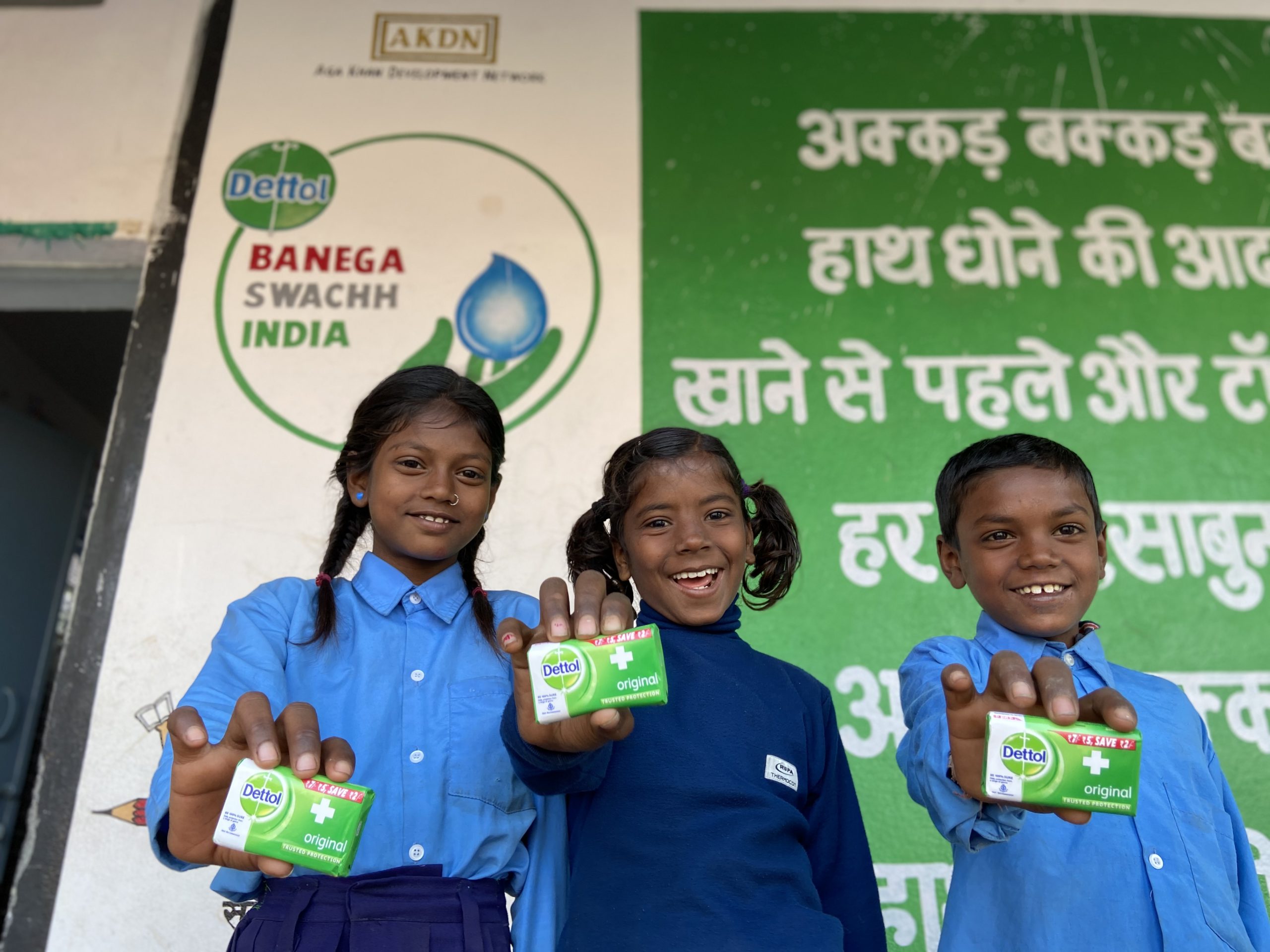
A Social Return on Investment Study was commissioned to gauge the efficacy of the AKF RB Dettol School Programme. Key findings include:
- For every 1 Rupee invested, the programme delivers 33.05 Rupees of social value.
- 89% of students follow all the necessary hygiene practices which have been taught in school
- 92% children reported sharing hygiene knowledge with parents and family members, acting as ambassadors of change
- 92% of the School Management Committees prioritised investments for school WASH infrastructure that resulted in improved access to and usage of toilets in schools due to the up gradation of school WASH infrastructure
- 97% teachers reported an increase in technical knowledge (pedagogy and conceptual clarity) regarding SHEP curriculum, as a result of teacher trainings facilitated by programme staff on the curriculum.
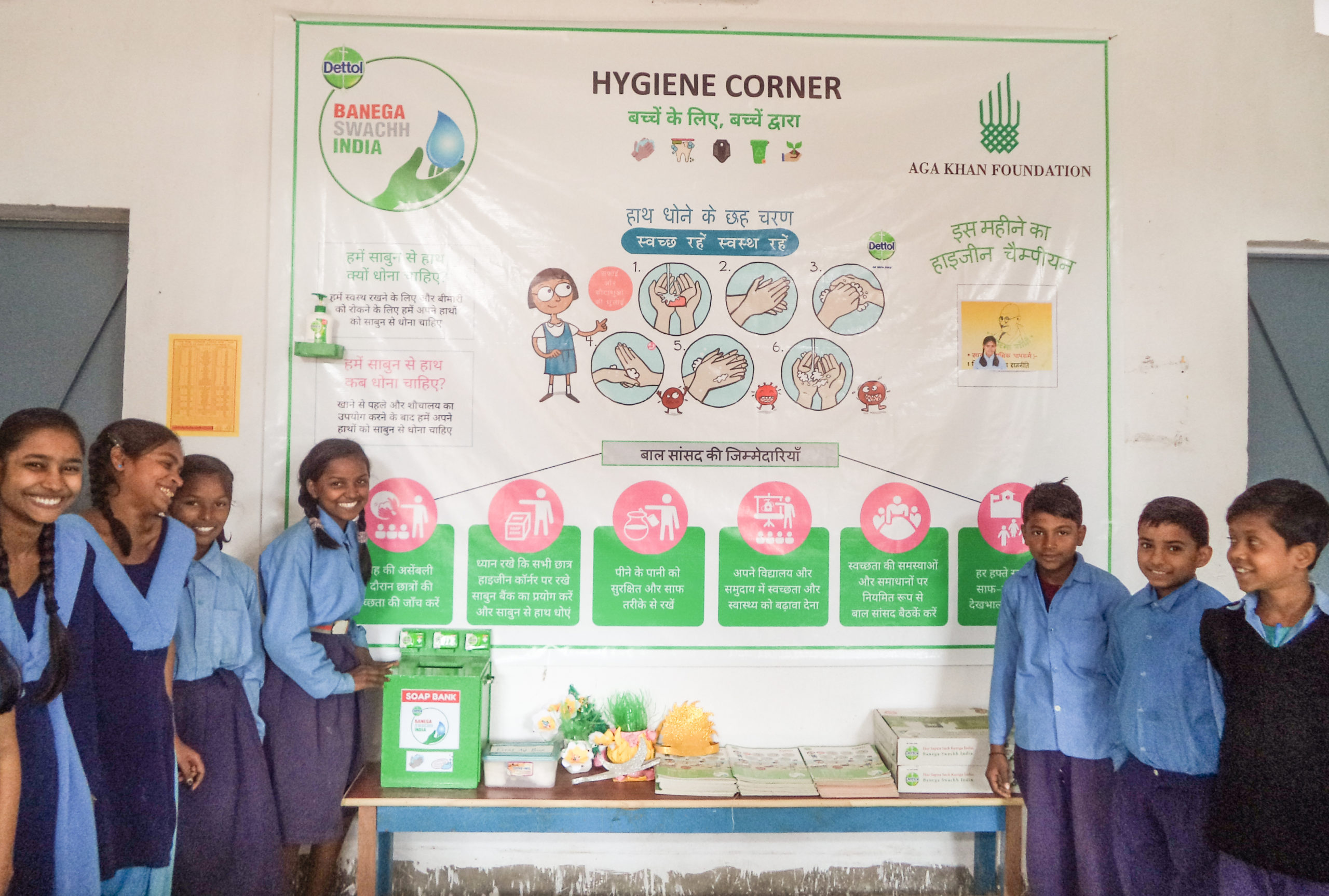
The major interventions that helped drive success under the programme included:
- Establishment of Hygiene Corners: A dedicated corner to teach WASH practices using posters, paintings, etc.
- Adoption of Games and Experiential Learning Methods: Gamification helped to make learning fun and day-to-day application led to experimentation of the lessons learnt at home and in school.
- Distribution of Hygiene Kits: Access to soaps, hand-wash and sanitary pads.
- Setting up of Soap Banks: Soap kept near toilets and wash basins for use before and after meals or after using the toilet.
- Teacher training: to inculcate the key tenets of the curriculum and prioritise its teaching in schools
“Changing hygiene behaviour is critical for healthier lives and to help protect children from illness. Having access to safe WASH facilities is a major requirement for a healthy learning environment, benefitting both children’s health and education.”
Dr. Matt Reed, Global Director of Institutional Partnerships, Aga Khan Foundation
View and download the full report
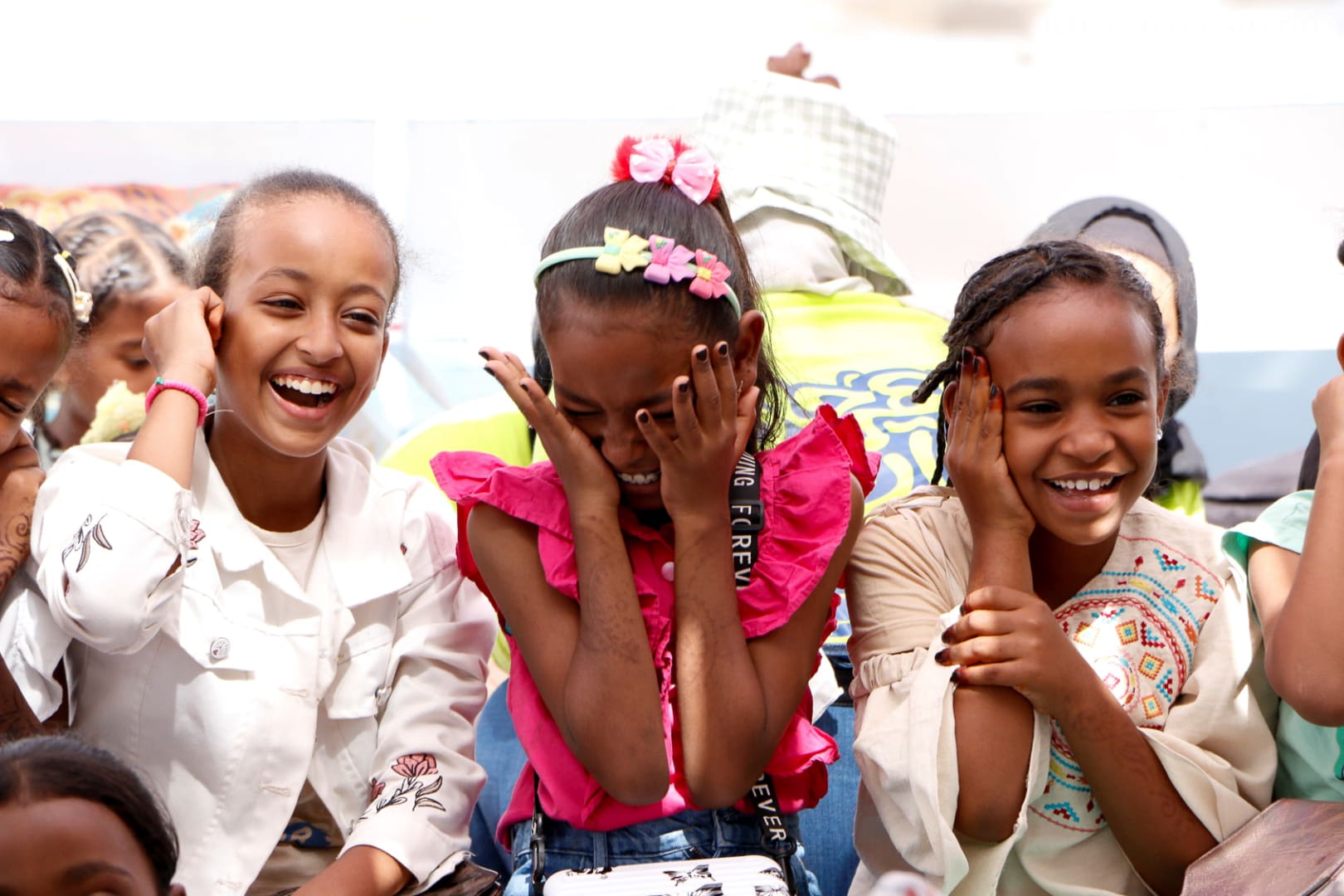
Support our work Your donations are helping us build a future where we all thrive together.
